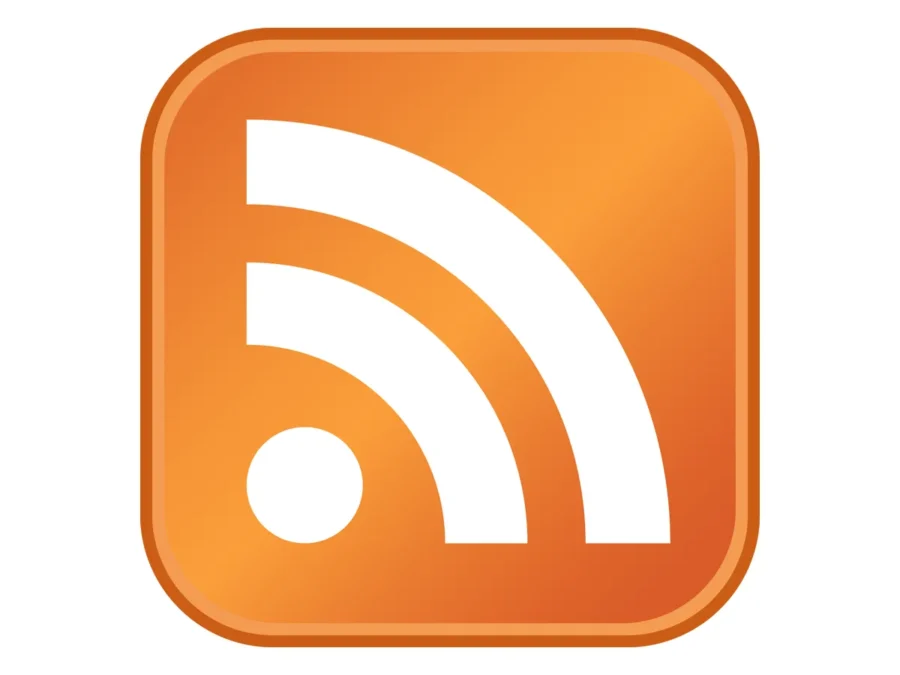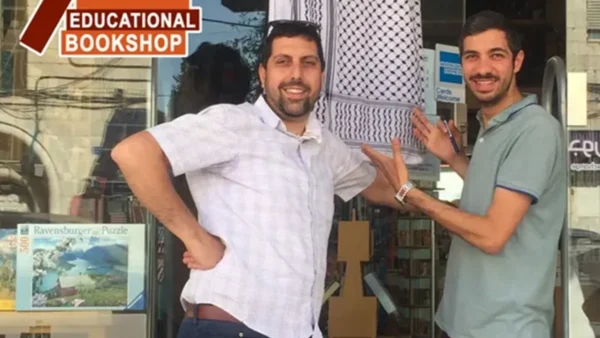Why a technology that many people seem to think is obsolete may actually be perfect for these times.
When I mention RSS these days, I often get either a complete lack of recognition or a kind of amused astonishment, as if I’ve just suggested sending them a fax.
It’s true that big tech companies, notably Google, have killed many of the RSS readers and other technology that used to be common ten or more years ago. It’s true that social media basically took over from RSS as a way of getting updates. It’s true that nobody even tracks RSS usage any more, as far as I can see. I’ve done editing work for tech companies that don’t even bother creating RSS feeds for their blogs because they think nobody uses it. But that doesn’t mean RSS is dead.
I’m sure many of my regular readers will be nodding their heads at all this. You may even be reading this on your RSS reader as you do so! Bloggers, after all, tend to rely on RSS readers as a way of keeping in touch with blogs they like and commenting on them. But we’re clearly in a minority. The latest stat I could find (sourced to a non-functioning website) claimed that 50 million people were using RSS feeds in 2022. That may sound like a lot, but it’s a tiny proportion of the overall web traffic. Most people use search engines, social media or, unfortunately, AI chatbots to get their information these days.
So why do we still need RSS in 2025? I want to put together a case for the old-fashioned RSS feed as a technology whose time has come again. But first, we need to go back and see why it almost died in the first place.
How the web began
In the early days of the internet, we lived with a mentality of scarcity. Yes, the internet already had loads of pages, even back in the late nineties when I first went online, but it still felt like an important discovery when we found a good website that provided the information or entertainment or whatever it was we were looking for. Search engines weren’t great, so we needed to bookmark these sites so that we could find them again.
This was the age of the bookmark, perhaps appropriately since we’d only just emerged from the world of print dominance. Our browsers became overloaded with bookmarks, social bookmarking became a thing (remember del.icio.us?), and we generated a network of sites that we’d regularly visit or refresh to see if they’d updated.
As sites updated more often, as newspapers went online, and as blogs came to prominence, we needed something more dynamic than bookmarks. The RSS reader entered its heyday—it was a place not just to keep a list of sites we liked, but also to see all their recent updates. Best of all, we didn’t even need to visit the sites and deal with janky interfaces, banner ads or weird Flash animations. We could read everything in one place, as it was published.
And then things changed…
Then, around the late 2000s to early 2010s, a few things changed:
- Social media took off. More people began getting their news and updates on Facebook or Twitter, which were easier to use and deliberately addictive.
- We started watching more videos and using smartphones and tablets to access the web, and RSS readers tended to be slow to respond to those shifts.
- The scarcity mentality was now long gone—good information and entertainment was everywhere. We had left bookmarks behind and now lived in the age of Google. Why follow a site when you could just google it if you needed to find it again?
- Big tech companies realised they couldn’t make money out of RSS and killed it. Google bought the massively popular Feedburner and slowly killed it, before killing its own Google Reader in 2013. Both Facebook and Twitter offered RSS feeds to let you follow people in the early days, but both killed off that feature in… yes, you guessed it, around 2013.
All these changes were important, but point 4 was really the nail in the coffin of RSS. Not only was it impossible to make much money from offering an RSS reader or other RSS-related service, but the very existence of RSS was a huge threat to the profits of the growing tech titans. If you used an RSS reader to access information, you were not visiting Facebook or Twitter and exposing yourself to their ads and algorithms. You were not being exposed to Google’s ads, either on its increasingly cluttered search page or on the websites that ran ads from Google’s network. You were in control.
Why RSS now makes sense again
We all know what happened after that. Filter bubbles, algorithmically driven news feeds, fake news, polarisation, privacy invasions, clickbait, spam bots, content farms, surveillance capitalism, notification addiction, doomscrolling, data harvesting, goldfish attention spans, cycles of outrage, misinformation loops, bad-faith discourse, trolling, trend-chasing, and the rise of the “influencer”. Oh, and at the same time, Big Tech made more profits than any industry in history.
Now, in 2025, we’ve come full circle. More and more people are complaining that the internet is getting worse, that it’s getting harder to find reliable information, etc. Perhaps relying on Google and Facebook has its downsides—who knew?
In other words, we’re back in the very same situation that led to the rise of RSS in the first place. The web is once again chaotic and confusing. We can’t “just google it” any more, unless we want to spend half an hour wading through badly written SEO spam to find what we want. We could ask our friendly neighbourhood AI chatbot to cut through the crap for us, and probably that’s what most people will do. But if you value human creativity and ingenuity, or if, perhaps, you want to use your brain for something other than prompt engineering, you could give RSS a try. Here are the advantages of this apparently outdated, obsolete technology:
- You’re in control. You get to choose which sites you follow and how you follow them. Your experience is not shaped by algorithms, and you exist as something more than a clicker of ads.
- There’s a wonderful sense of familiarity that comes from seeing regular updates from sites you like. It’s like the flop of a newspaper on the front mat every morning. And if you choose to go really old-school and leave comments, you can build a sense of community. I’ve been following some blogs and other sites via RSS for 15 years, watching people pass through different stages of life. You simply can’t get that from a Google search or a chatbot.
- You don’t get notifications. I mean, maybe you can set up an RSS reader to harass you with red blobs and noises if you want to, but I’ve never felt the need. The whole point is that there’s nothing trying to direct your attention in one way or another—you just have a list of sources and/or articles, and you can click on whatever interests you.
- It’s easy to dip in and out. You can read every article from a site if you want, or you can let them build up and then make your way through the backlog, picking out only what interests you. One thing I hate about signing up to an email list is that the emails come on someone else’s schedule and clog up my inbox. With RSS, you don’t receive anything—it’s just waiting there for you to read when you want.
- You can curate source lists for multiple areas of interest. I have folders for book bloggers, lit mags, politics, travel, fiction writers, environmental news, etc. We all have different areas of interest, and RSS makes it easy to see them all in one place while also keeping them separate—unlike on social media, where everything tends to get mixed up.
- RSS makes the web manageable. Of course, I still use search (DuckDuckGo, not Google) all the time to discover things in the wider web, but I like the feeling of shrinking the web down to something more manageable. There’s still more in my RSS feed than I’ll ever read, but it’s not as vast as the whole internet.
- It makes the web trustworthy. A lot of the anxiety and uncertainty that comes from being online in 2025 is about lack of trust. Is this site fake news? Can I trust this social media post? Was this video created with AI? When everything’s from a random source you came upon through search or social media, you have to scrutinise it or risk being duped. With RSS, you’re using trusted sources that you’ve picked yourself.
- RSS is about openness and interoperability, the core foundations of the web. Powerful companies have gradually enclosed more and more of the web and made us pay to access it, either directly or by surrendering our privacy and having our data harvested for profit. RSS lets you access the web on your own terms.
- You’re exposed to the remnants of the indie web. These are the people who are still creating cool stuff and sharing it because they want to, the people who don’t know or don’t care about SEO, the people you could have discovered in search results a decade ago but who have now been shunted down to page 25 by a massive fatberg of over-optimised content. They were probably on Twitter ten years ago but have now walked away in disgust. When you find someone like this today, you need to follow them because you won’t find them again. RSS can help with that. In an age when search results have become polluted by SEO spam, think of RSS as an anti-SEO strategy.
There are probably more benefits, and if you have any to add, please do so in the comments below. I think there’s just one more thing I’d like to say for now. When I use an RSS reader to navigate the web, I feel calm. How many of us can say that about being online these days?




There are 15 comments
I used to love RSS readers, but then myfavorite were discontinued. so now I follow book blogs thorugh email. What is currently your favorite RSS reader? I would love for sure to unclog my email boxes
Yes, quite a few were discontinued! I use Feedly, which seems to be the most popular one remaining. It does a good job, and it’s free (there’s a premium version too, but the free one does what I need it to do). I also sometimes use the WordPress.com “Reader” feature, which I guess runs on RSS too.
Seconding here for Feedly (and for the free version too).
Great idea, Andrew, to write about this. I was an on older system in March when my work computer was in the shop, and it was so funny to revisit all my old bookmarks on there. You’re right: now we just search again. /sigh
Yes, I remember when my old Internet Explorer browser (or before that Netscape Navigator) was loaded down with hundreds of bookmarks! Searching then just became easier, especially when browsers began integrating the search bar with the address bar—all we needed to do was remember enough of the name of the site or the subject of the article and type it in. But I do think RSS is a better way of following a site. The question is, will people even want to do that as they become more reliant on AI?
freshRSS
Use Thunderbird! It also has email, calendar, address book, and chat (yes I have my IRC account on there)..
Good call, Chris. Thanks for the recommendation!
I used to love delicious and feedburner. I suspect a lack of RSS readers and the ensuing enshittification of the web is what has led to so many folks turning to newsletter formats and/or offering email notifications.
Yes, definitely! Substack has become very popular in recent years, and I think a large part of its appeal is connected to some of the things I like about RSS, e.g. the return to trusted sources amid the chaos of the enshittified web.
feedly for me too, though I’m only just returning to it. enjoyed your post.
Thanks Ralph! I’m curious about why you’re returning to RSS/Feedly. Is it for some of the reasons I mentioned in my post, or do you have different reasons?
Where is the RSS button for this blog?
It’s in the sidebar on https://andrewblackman.net/blog/. Not very obvious, I know. I used to have it on individual posts too, but I removed the sidebar in a site redesign a year or two back. The URL is https://andrewblackman.net/feed/ if you want to sign up.
Thanks so much for this post. I loved the days of Google Reader.
Thanks for commenting, Veronica. Yes, I miss those days! I didn’t want to get into mentioning services in the post in case it read like content marketing, but you can still find good RSS readers to use these days if you want to. I use Feedly.